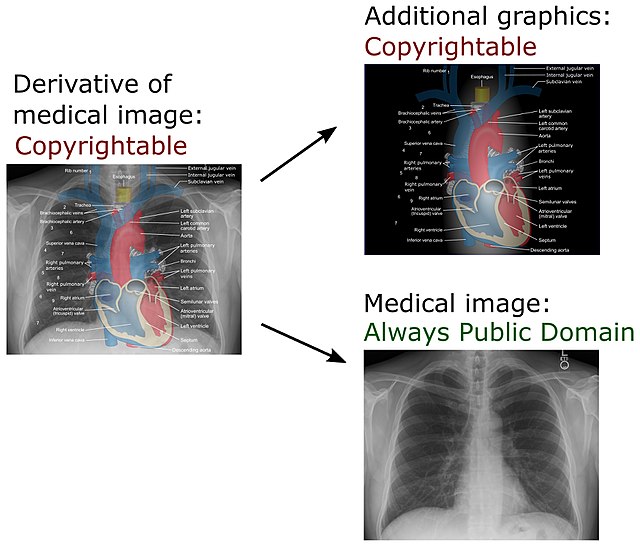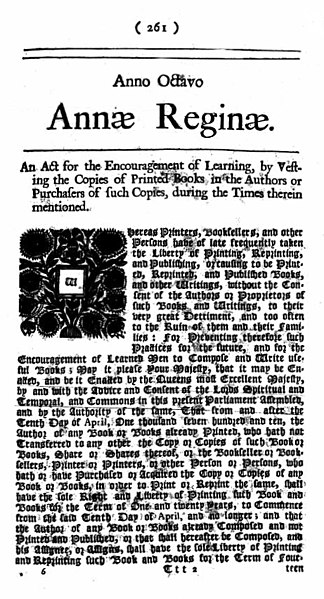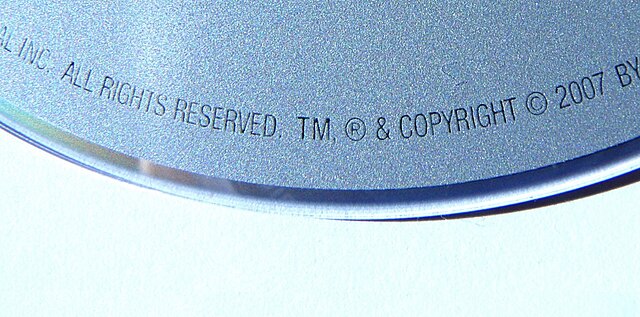A Creative Commons (CC) license is one of several public copyright licenses that enable the free distribution of an otherwise copyrighted "work". A CC license is used when an author wants to give other people the right to share, use, and build upon a work that the author has created. CC provides an author flexibility and protects the people who use or redistribute an author's work from concerns of copyright infringement as long as they abide by the conditions that are specified in the license by which the author distributes the work.
Aaron Swartz and Lawrence Lessig at the 2002 event for the first release of the licenses
An example of a permitted combination of two works, one being CC BY-SA and the other being public domain
A copyright is a type of intellectual property that gives the creator of an original work, or another right holder, the exclusive and legally secured right to copy, distribute, adapt, display, and perform a creative work, usually for a limited time. The creative work may be in a literary, artistic, educational, or musical form. Copyright is intended to protect the original expression of an idea in the form of a creative work, but not the idea itself. A copyright is subject to limitations based on public interest considerations, such as the fair use doctrine in the United States.
The Statute of Anne (the Copyright Act 1709) came into force in 1710.
The Pirate Publisher—An International Burlesque that has the Longest Run on Record, from Puck, 1886, satirizes the then-existing situation where a publisher could profit by simply copying newly published works from one country, and publishing them in another, and vice versa.
A copyright symbol embossed on a piece of paper
Generic DVD: All rights reserved






